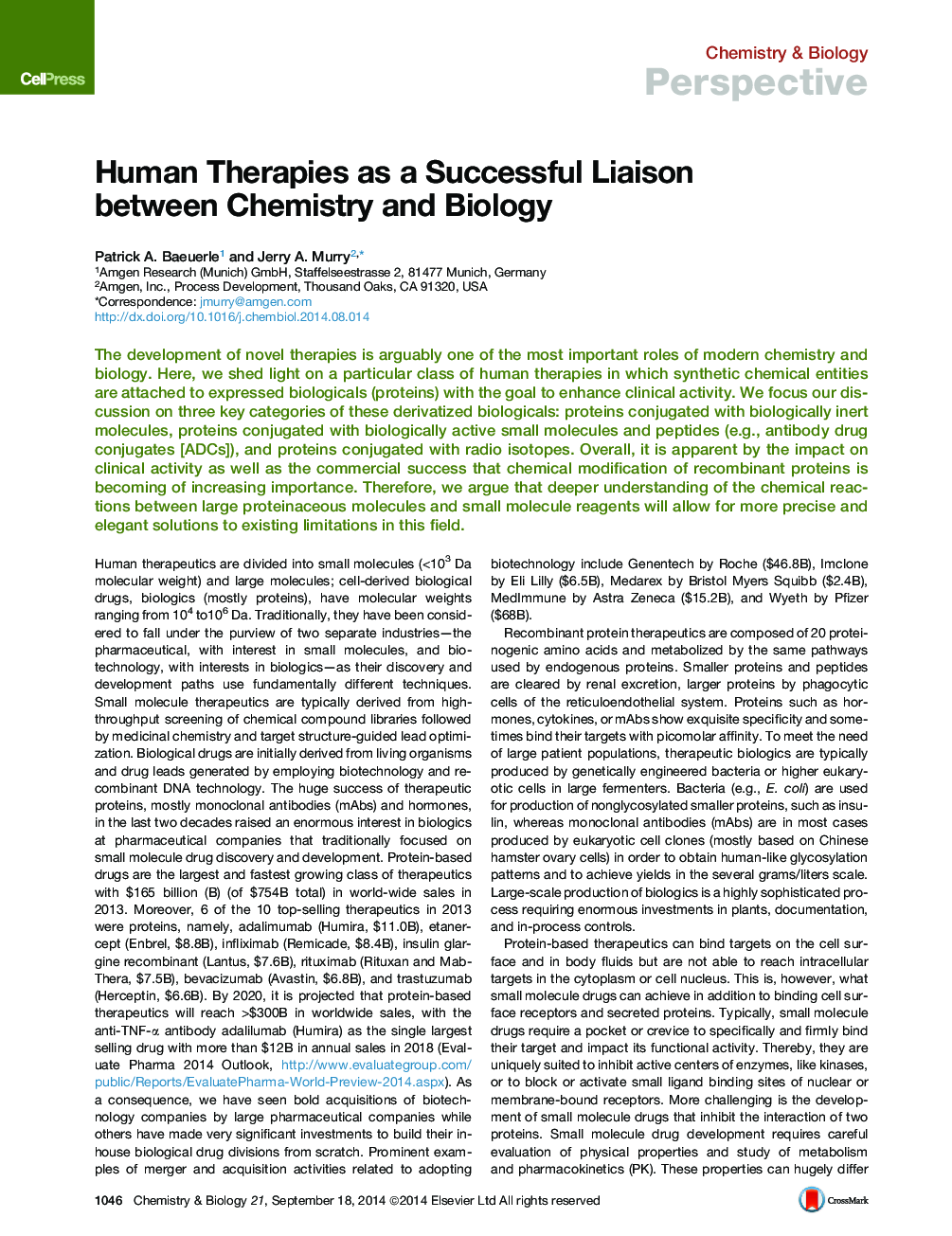| Article ID | Journal | Published Year | Pages | File Type |
|---|---|---|---|---|
| 1392098 | Chemistry & Biology | 2014 | 9 Pages |
The development of novel therapies is arguably one of the most important roles of modern chemistry and biology. Here, we shed light on a particular class of human therapies in which synthetic chemical entities are attached to expressed biologicals (proteins) with the goal to enhance clinical activity. We focus our discussion on three key categories of these derivatized biologicals: proteins conjugated with biologically inert molecules, proteins conjugated with biologically active small molecules and peptides (e.g., antibody drug conjugates [ADCs]), and proteins conjugated with radio isotopes. Overall, it is apparent by the impact on clinical activity as well as the commercial success that chemical modification of recombinant proteins is becoming of increasing importance. Therefore, we argue that deeper understanding of the chemical reactions between large proteinaceous molecules and small molecule reagents will allow for more precise and elegant solutions to existing limitations in this field.
